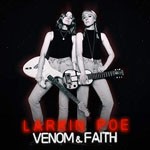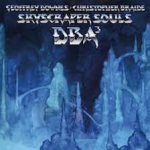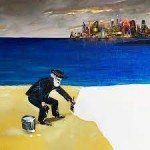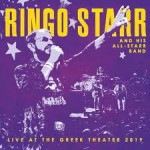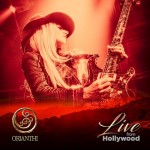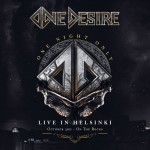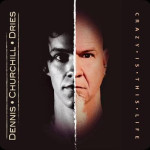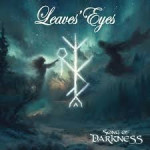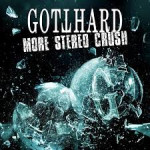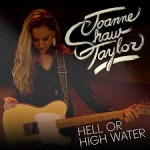Book review: BICKERSHAW FESTIVAL 50th ANNIVERSARY – Featuring Grateful Dead by Chris Hewitt
Share the post "Book review: BICKERSHAW FESTIVAL 50th ANNIVERSARY – Featuring Grateful Dead by Chris Hewitt"
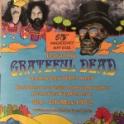
Dandelion Records & Books [Publication date 30.06.22]
Author Chris Hewitt has carved out his own niche in rock and roll history as an author, archivist, record label and resource for period pa gear.
The broad context for this book is the counter culture as it still existed in the early 70’s and the way it manifested itself through music, literature and in this case festivals.
His latest book ‘Bickershaw Festival 50th Anniversary Featuring The Grateful Dead’ is actually an updated re-issue of his 40th anniversary box set.
It’s packed full of photos, well researched reminiscences, and though it’s poor in structure, it invites the reader to immerse themselves in 177 photo laden pages. There’s also an extra 26 odd pages of Grateful Dead biographical and pictorial info at the end on unnumbered pages, which inadvertently highlights the need for a decent index, an omission that plagues too many music books.
The Bickershaw book dwells on the festival’s original mission statement, which was: “3 days of peace and music.”
In hindsight the organiser’s might well have might as well have added dreadful weather. For had this been an army training camp, even some of the soldiers might have complained. But as the author points out, in spite of the adversity there was a certain ‘can do’ vibe which translated into the stirring memories captured in this book.
Much like the smaller and 4 month later Buxton Festival (think a bleak September in the heights of unforgiving Derbyshire), the Jeremy Beadle driven festival (yes it was him) asked a lot of its core hippy audience and all the curious revellers who turned up for a festival on their doorstep.
Indeed Hewitt sees Beadle as something of a hero, noting: “It is testimony to Jeremy’s amazing ability and self belief that the event was such an artistic success given the weather and the underlying financial problems.”
Fired by the notion of creating a British Woodstock, Beadle was hampered by a poor choice in his business partners, leading to a shortfall in promised funding and the like.
Beadle’s major backer Harry “The Count” Bilkus said: “If everyone had paid to get in then this disaster might have been averted.”
When trying to work out the reasons for the huge loss at the end of the event, very little attention is paid to the reported astronomical fees and first class travel for the likes of The Dead, let alone their egotistical need to fly over their own live recording gear from the States at ridiculous expense.
Headlined by West Coast counter culture heroes such as The Grateful Dead, Captain Beefheart, New Riders Of The Purple Sage, as well as Dr. John, Country Joe etc, when you read the countless uncredited music press reviews in the book, it was staple British festival bands like Family and Wishbone Ash and to a lesser extent Hawkwind, who illuminated the arena as the rain poured down. They not only made the biggest impact but probably added to the attendance.
And while Donovan, The Kinks provided the home-grown star quality, the bill was fleshed out with underrated artists like Stackridge, Linda Lewis and Jonathan Kelly.
Roy Harper was also on one of the festival billboards, but seems to either not have tuned up or was missed by the critics.
If you really dig deep into this book, the most significant aspect of Hewitt’s archive is the reflections of the fans and festival goers themselves.
Everyone one of them has a memory engraved in their DNA for life of a time when people came together for good reasons and saw off the elements to tell the tale.
No more so than one Andrew Rogers from Thames Ditton, who is quoted thus: “Does anyone remember the guy playing piano on a tiny stage in the middle of an empty , smoke filled marquee after the festival had ended? It sounded like a beautifully extended version of McArthur Park, but who knows?”
Who indeed? Then there’s the guy who gravitates towards Beefheart’s retinue and inadvertently ends up on stage with him.
Beefheart: “We have to go on stage soon. You don’t want to be down here crawling around in the mud. Would you like to come up with us?”
Classic stuff. Then of course there is the author himself, whose feverish passion continues to burn 50 year after the event and still helps forge a continuing audio literary archive.
And what of the Dead themselves? Very little in fact. They came, they saw and they reaffirmed their fans commitment by doing their customary 4 hour set. They filmed it all and left.
Jerry Garcia is quoted as saying something about just being there for the money!
Another interesting question that is floated, but not pursued sufficiently enough is the well intentioned point about the substance of free festivals. Curiously this is actually one of the poorest researched parts of the book.
In listing some of the free festivals of the time, Hewitt seems to have overlooked several salient ones including Watchfield, the celebrated post-Windsor week-long gathering on a site actually given its blessing by the government. Instead he makes a case for festivals like the Isle of Wight and indeed Bickershaw, which became ad-hoc free festivals, ie. people got in without paying!
No matter, this is an enjoyable romp through yesterdays counter cultural past. When you pull together Hewitt’s other work on the Deeply Vale festivals etc, you realise he’s more into a geographically defined (North West UK) social history approach. And his main point seems to be the durability of hippy ideals which later merged with a DIY punk and a crusty traveller ethos to vex Thatcher so much.
But back to the 50th anniversary of Bickershaw. The photos alone make this a good coffee table book. And while I’m not convinced everyone was happy at the time in the rain and mud, or even thought of Bickershaw in terms of being a great festival, the fact that there is enough interest to warrant a reissue of this book suggest plenty of people still want to remember their youth in terms of their collective idealistic spirit, grit and determination.
Worth buying. ****
Review by Pete Feenstra
Featured Artist: JOSH TAERK
Since early 2020 Josh has been entertaining us with exclusive monthly live sessions,
Check out videos here: https://www.facebook.com/getreadytorockradio
Upcoming sessions:
February 15
March 8
April 12

David Randall presents a weekly show on Get Ready to ROCK! Radio, Sundays at 22:00 GMT, repeated on Mondays and Fridays), when he invites listeners to ‘Assume The Position’. The show signposts forthcoming gigs and tours and latest additions at getreadytorock.com. This “Best of 2025 reviewer choices” show was first broadcast on 21 December 2025.
UK Blues Broadcaster of the Year (2020 and 2021 Finalist) Pete Feenstra presents his weekly Rock & Blues Show on Tuesday at 19:00 GMT as part of a five hour blues rock marathon “Tuesday is Bluesday at GRTR!”. The show is repeated on Wednesdays at 22:00, Fridays at 20:00). Pete’s Best of 2025 was first broadcast on 23 December 2025
How to Listen Live?
Click the programming image at the top of the page (top right of page if using desktop)
Get Ready to ROCK! Radio is also in iTunes under Internet Radio/Classic Rock
Listen in via the Tunein app and search for “Get Ready to ROCK!” and save as favourite.
More information and links at our radio website where you can listen live or listen again to shows via the presenter pages: getreadytorockradio.com
Power Plays w/c 26 January 2026
JOANNE SHAW TAYLOR Hell Or High Water (Journeyman Records)
TY FREEMAN One Way Love (indie)
GREY DAZE Monster You Adore (indie)
HOKKA Death By Cupids Arrow (Nuclear Blast Records)
PURPLE DOTS Stared At The Sun (Kycker)
SAINT AGNES Song For Mia (Spinefarm)
STREETLIGHT Shake That Feeling (Frontiers)
Featured Albums w/c 26 January 2026
09:00-12:00 The Best of 2003 – 2025 (Melodic Rock)
12:00-13:00 The Best of 2003 – 2025 (Melodic Hard Rock)
14:00-16:00 The Best of 2003 – 2025 (Singer Songwriter)
Our occasional Newsletter signposts latest additions to the website(s). We also include a selection of recent top albums, based on GRTR! reviewer ratings. The newsletter is sent out a few times a year.
If you’d like to register to receive this occasional mailing please complete the form:
If using a smartphone/tablet please tap here or re-orientate your device
(Note that this registration is separate from site registration which allows you to leave comments and receive daily emails about new content. If you wish to register for this – in addition or separately – please click or tap here – for more information – the form is at the foot of each page. Please read our privacy policy when opting-in to receive emails.
Recent (last 30 days)
Share the post "Book review: BICKERSHAW FESTIVAL 50th ANNIVERSARY – Featuring Grateful Dead by Chris Hewitt"
















